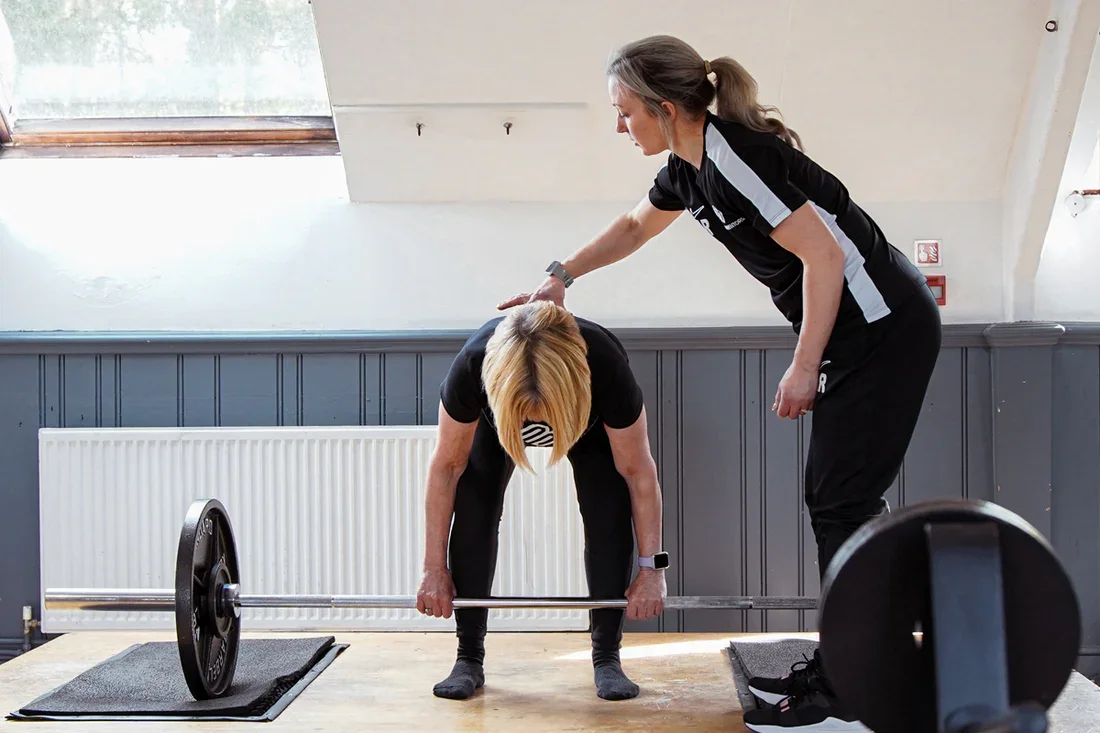Strong Through the Transition: Why Strength Training Matters in Perimenopause and Menopause
For many women, the journey through perimenopause and menopause can feel like an unpredictable rollercoaster — physically, mentally, and emotionally. One of the most important (and often overlooked) aspects of this life stage is how hormonal shifts affect your muscles, bones, and joints.
At Woodend Osteo, we’re here to help you understand these changes and guide you toward strategies that support your body — and one of the most effective tools in your toolkit is strength training.
Hormonal Changes & Your Muscles, Joints, and Bones
As estrogen levels decline during perimenopause and menopause, the effects go beyond your reproductive system. Estrogen plays a key role in:
Bone density – Low estrogen increases the risk of osteoporosis
Muscle mass and strength – Loss of lean muscle accelerates with age
Tendon health and joint function – Resulting in more aches, stiffness, and potential injuries
These changes can lead to increased fatigue, reduced mobility, and greater risk of falls or fractures — especially if you're not actively maintaining strength.
Why Strength Training is Essential
Strength or resistance training doesn’t mean lifting heavy weights in a gym if that’s not your style. It can include bodyweight exercises, resistance bands, or functional movements tailored to your ability.
Benefits include:
Preserves Muscle Mass
Muscle mass naturally declines with age, but resistance training can slow — or even reverse — this trend, helping you stay active, independent, and strong. Muscle mass has the added bonus of helping control blood sugar levels and cardiovascular health.
Supports Bone Health
Weight-bearing and resistance exercises stimulate bone growth and help reduce the risk of osteoporosis — especially important during and after menopause.
Improves Joint Stability
Stronger muscles help support your joints, reducing strain and improving function.
Boosts Mood and Mental Clarity
Exercise increases endorphins, supports better sleep, and helps reduce brain fog — all common concerns during perimenopause.
Enhances Metabolism and Weight Management
Maintaining muscle mass supports a healthy metabolism, making it easier to manage weight as hormonal changes slow things down.
Where to Start
If you’re new to strength training, the key is to start slow and build gradually. Focus on exercises that target major muscle groups — legs, hips, core, back, and arms — and ensure proper form and control. Movements should be challenging but safe.
You don’t need to go it alone. At Woodend Osteo, our practitioners can help you:
Identify your starting point and personal goals
Design a personalised rehab or strength-based exercise plan
Modify movements for joint pain, injury, or low fitness levels
Track your progress and adjust as your body adapts
Support Beyond Strength
Strength training is just one piece of the puzzle. We also work with women on:
Managing pain and stiffness through osteopathic treatment
Building mobility and balance
Navigating energy and sleep changes
Informing Women if further investigations should be undertaken eg. DEXA Scan to rule out Osteoporosis / Osteopenia
Collaborating with nutritionists and other health professionals for a whole-body approach
It’s Never Too Late to Get Strong
Whether you're noticing changes in your energy, dealing with new aches, or just want to feel more in control of your body, building strength can be one of the most empowering things you do during perimenopause and beyond.
If you’re not sure where to begin, we’re here to help. Book a session with one of our osteopaths to discuss how we can support your movement, strength, and wellbeing — through menopause and well into the future.
Woodend Osteo
Helping women move better, feel stronger, and thrive at every stage of life.








